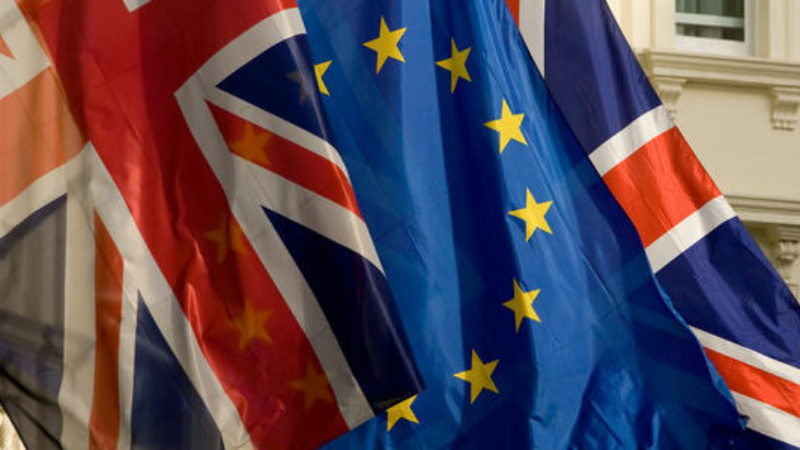

The free movement of people was arguably the most controversial issue during the EU referendum campaign. Immigration remains a difficult issue for Labour and a concern for many of our voters. For the second regular meeting of Labour MPs on Brexit, I invited some experts to discuss the possible options post-Brexit. Sunder Katwala and Jill Rutter from British Future, and Chris Murray from IPPR, gave us some excellent insights into their recent research, polling and focus groups on immigration.
The country voted to leave the EU for a variety of reasons and immigration was one of the dominant reasons. The leave vote reflects a loss of public confidence in how successive governments have handled immigration and integration over the last fifteen years. However, that doesn’t mean there is a majority in favour of being anti-migrant or supportive of an indiscriminate crackdown.
The experts presented research which showed that people’s concerns were not necessarily about the overall numbers, though that was a factor, rather it was both a loss of confidence in successive governments’ handling of immigration and a perceived unfairness of the free movement system. The Labour government underestimated the number of people who would come to Britain from Eastern Europe after the EU’s enlargement in 2004. More recently, the Tory government has promised to bring down net migration to tens of thousands which has proved totally unrealistic.
There were also a number of other factors at play. Many perceive the system of free movement as unfair, believing that migrants were able to take out before paying in. One example given was that migrants were immediately able to use public services upon arriving in the UK, without having contributed. Notwithstanding this, focus groups showed that those who voted leave on the basis of their concerns about immigration are not anti-migration. Instead, most just wanted a fair and more selective system, which gave greater control over immigration. In their polling and focus groups, the experts explained that there was more concern about low-skilled migrants, than highly skilled migrants or students. The majority believed that those EU migrants already here should have the right to stay.
There exists a real opportunity to build a consensus in the country given the widespread desire for a moderate, balanced, and more controlled system that addresses the issues of contribution and trust, and that deals specifically with low-skilled migration. The crux of the matter is how politically achievable this will be in the negotiations with the 27 EU members states.
There are six broad political positions on free movement and there is a clear spectrum between maintaining the status quo and an attempt to end free movement altogether. First, that free movement is inherently a good thing and we should maintain it. Second, that it is a price worth paying for membership of the single market. Third, single market membership should be prioritised and we should seek the reforms to free movement that are compatible with it. Fourth, that we need to seek the best market access and migration controls which seems to be the middle ground. Fifth, that we prioritise immigration control and then seek the market access that is compatible with it. Sixth, that we neither want nor need preferential market access and don’t want to make any deal on migration part of the trade negotiations with the EU.
There was clearly a big trade-off to be considered with many of these options: access for companies based in the UK to the EU’s single market would be more restricted, the tighter the restrictions on migration. The government could consider preferential treatment for EU nationals over non-EU nationals, in order to secure the best possible economic deal and retain access to their markets. This could for example mean that EU nationals don’t face more restrictive provisions that exist such as income thresholds and language skills. Given the EU often requires reciprocity from its third country partners, this could also mean a better arrangement for British nationals visiting the EU too.
However, this might not deliver the kind of control that the public want so we also discussed in detail the possibility of option four and what form that could take. We considered whether the government should push for maintaining free movement for highly-skilled migrants but introduce a new system to control pace and scale of unskilled immigration.
Differing regional arrangements was another option that the group discussed given there was generally less public concern about free movement in some areas, such as Scotland and London. This could be based on the Australian and Canadian systems. Australia uses a regional-sponsored migration scheme where a three-year visa is granted when workers get sponsorship from employers; and Canada has a four-year scheme where employers hire from abroad only if they haven’t been able to recruit domestically. Allowing regions to control immigration would recognise the varying needs around the country, but may be difficult to administer and would require tough residency requirements.
As this debate unfolds, it is important to remember that the public are looking for an immigration system that is fair and that helps to rebuild their trust following the failure of successive governments handling of immigration and integration. So the government should stop making promises they can’t deliver on and reflect people’s concerns in the European negotiations, otherwise they will further feed the mistrust of the public. And Tory ministers must stop the anti-migrant and inflammatory rhetoric, because while it may strike a chord with their party members in the conference hall it is not in tune with the public who want a more balanced approach. Ultimately, getting the best possible economic deal while also acting on people’s legitimate concerns over immigration will require sensitive handling and management; the government must up their game.




More from LabourList
‘I spent years telling workers the law couldn’t help them – that has changed’
Josh Simons resigns as Cabinet Office minister amid investigation
‘After years of cuts, Labour’s local government settlement begins to put things right’